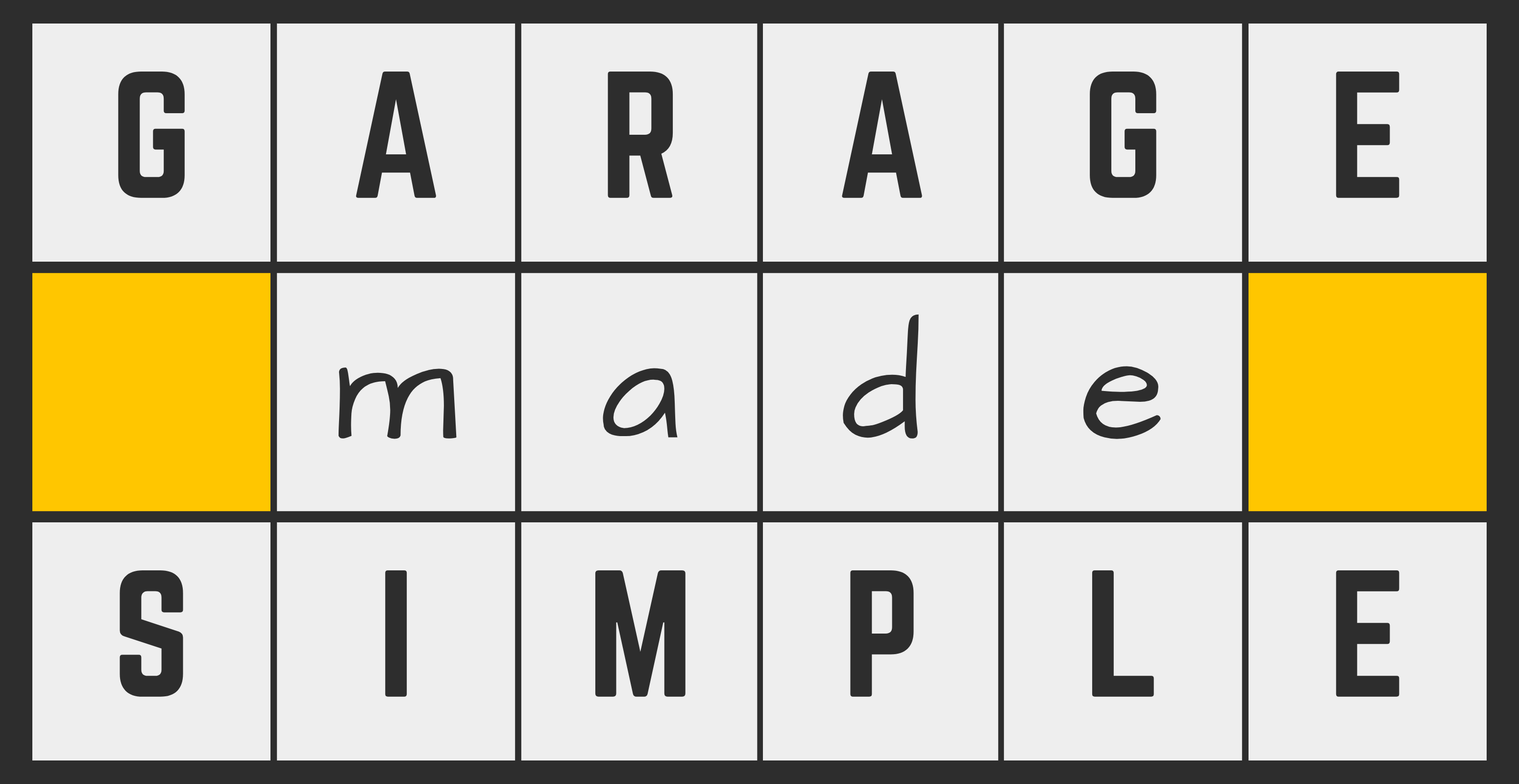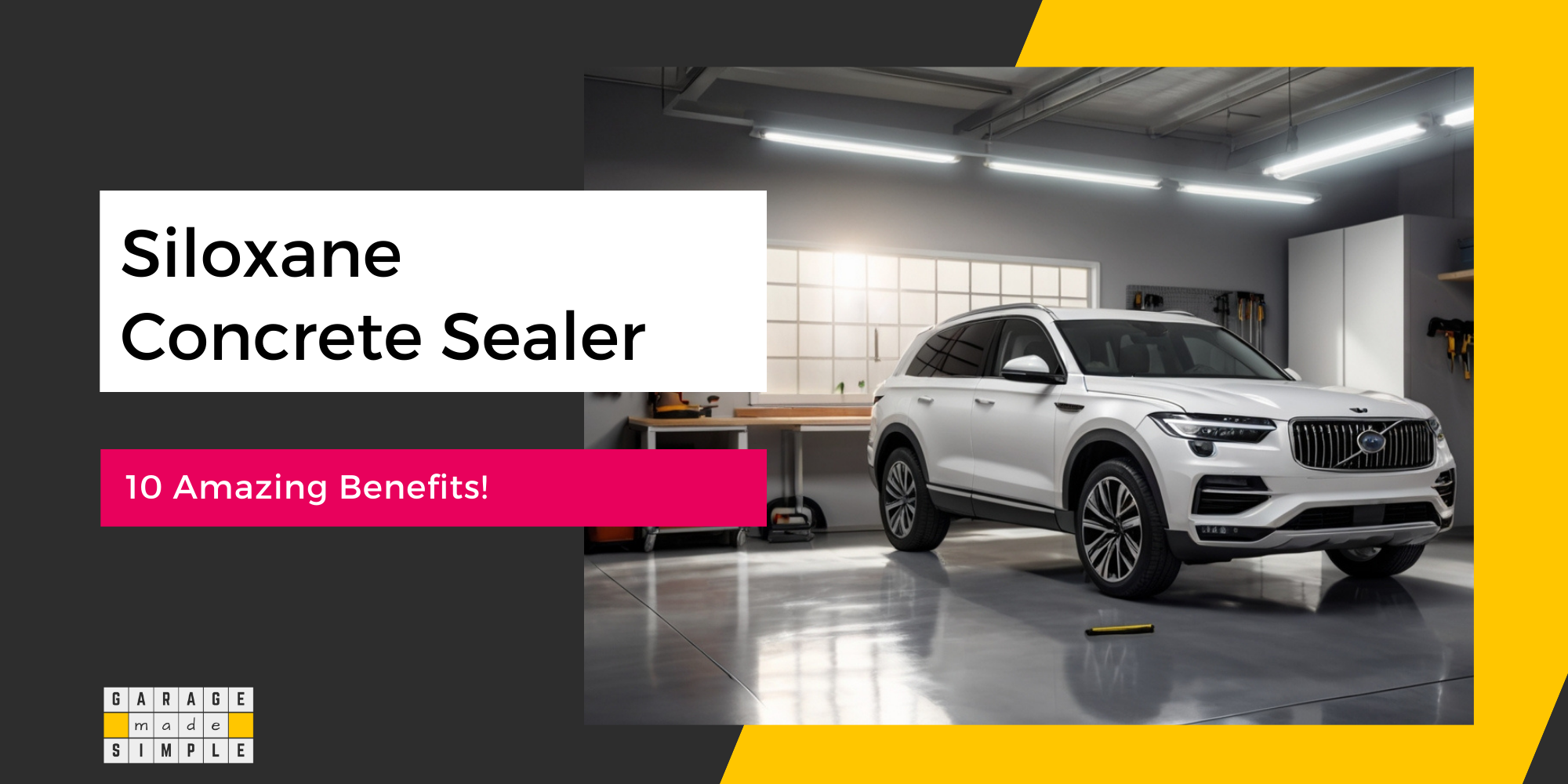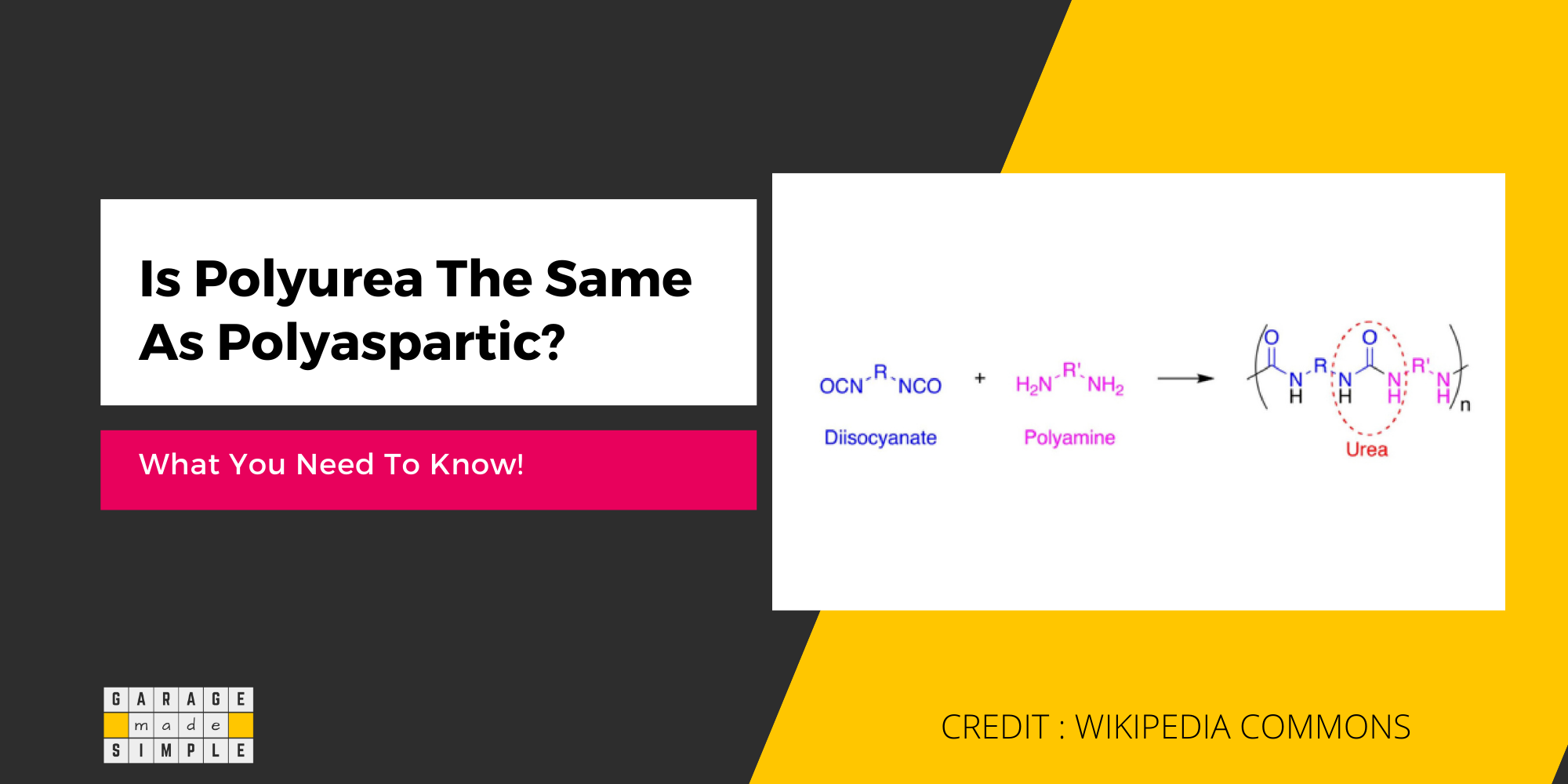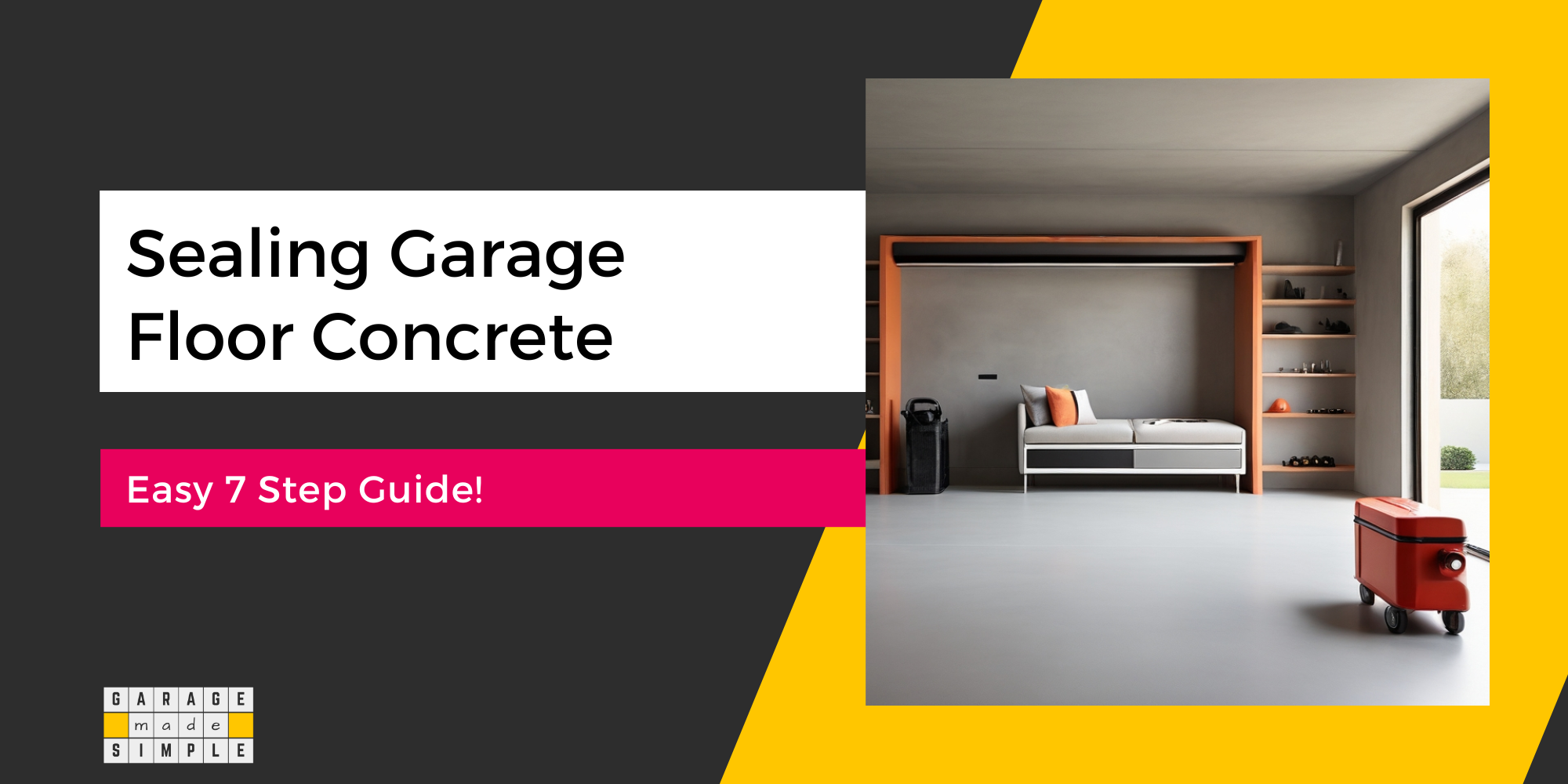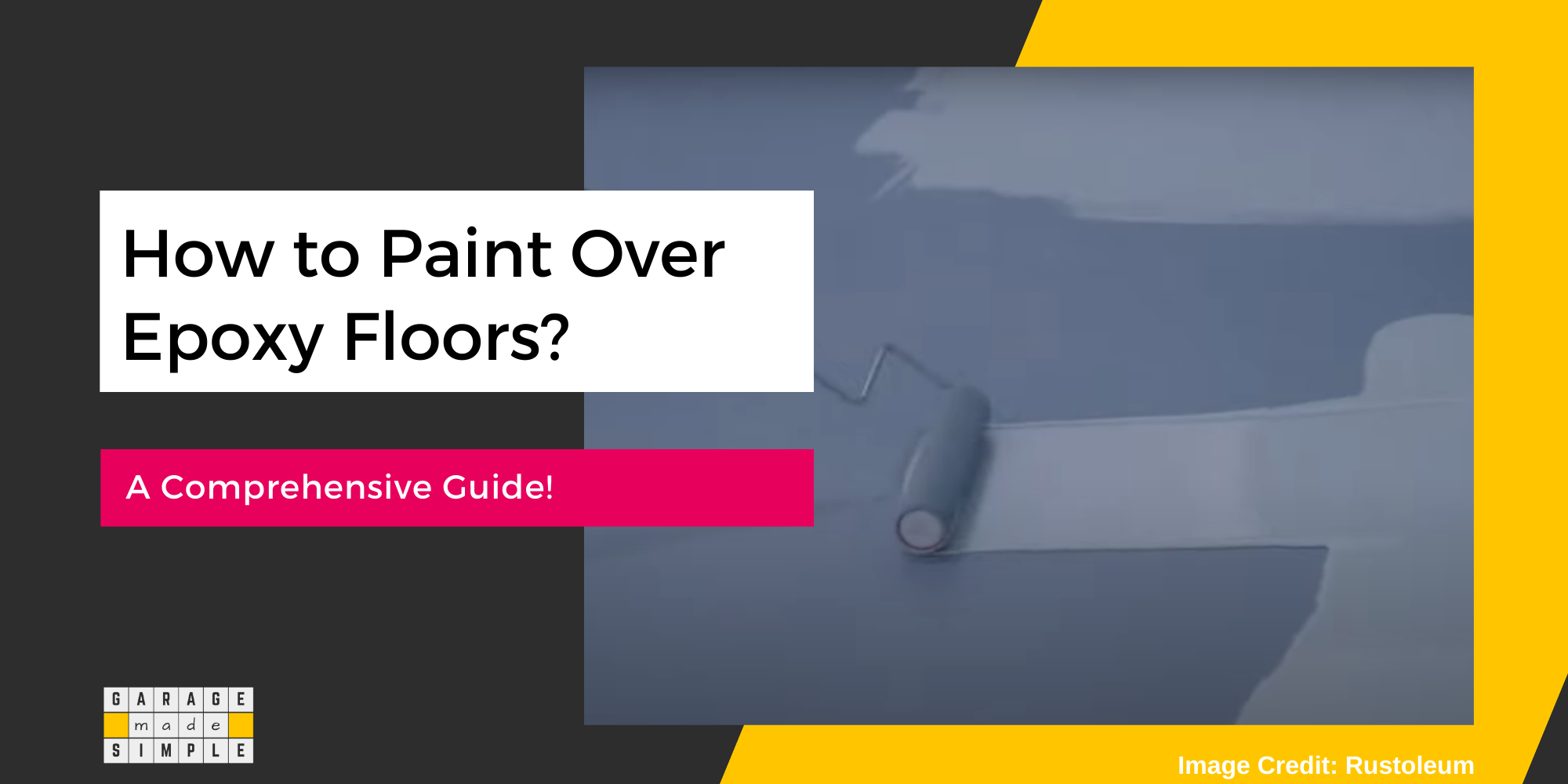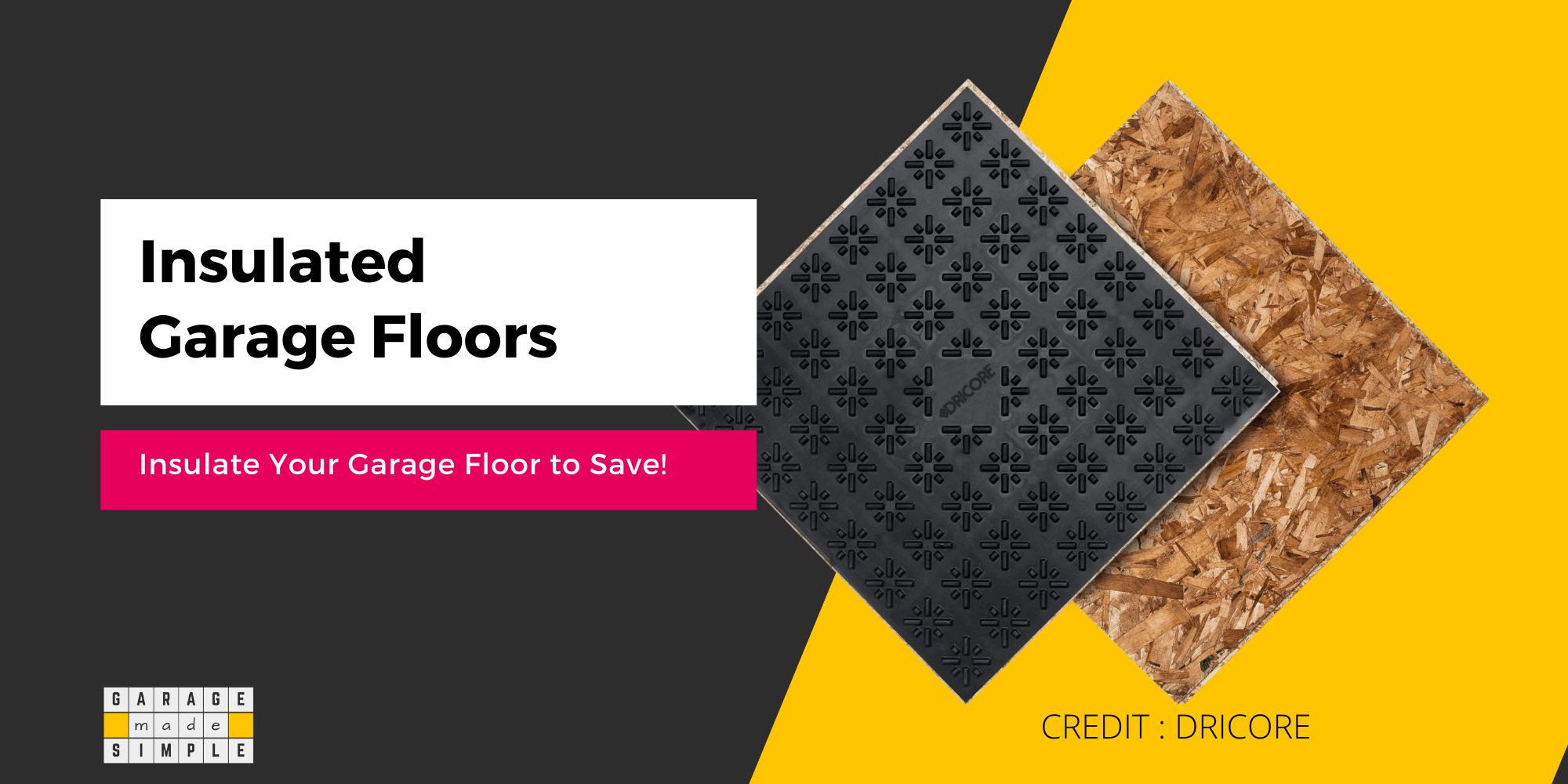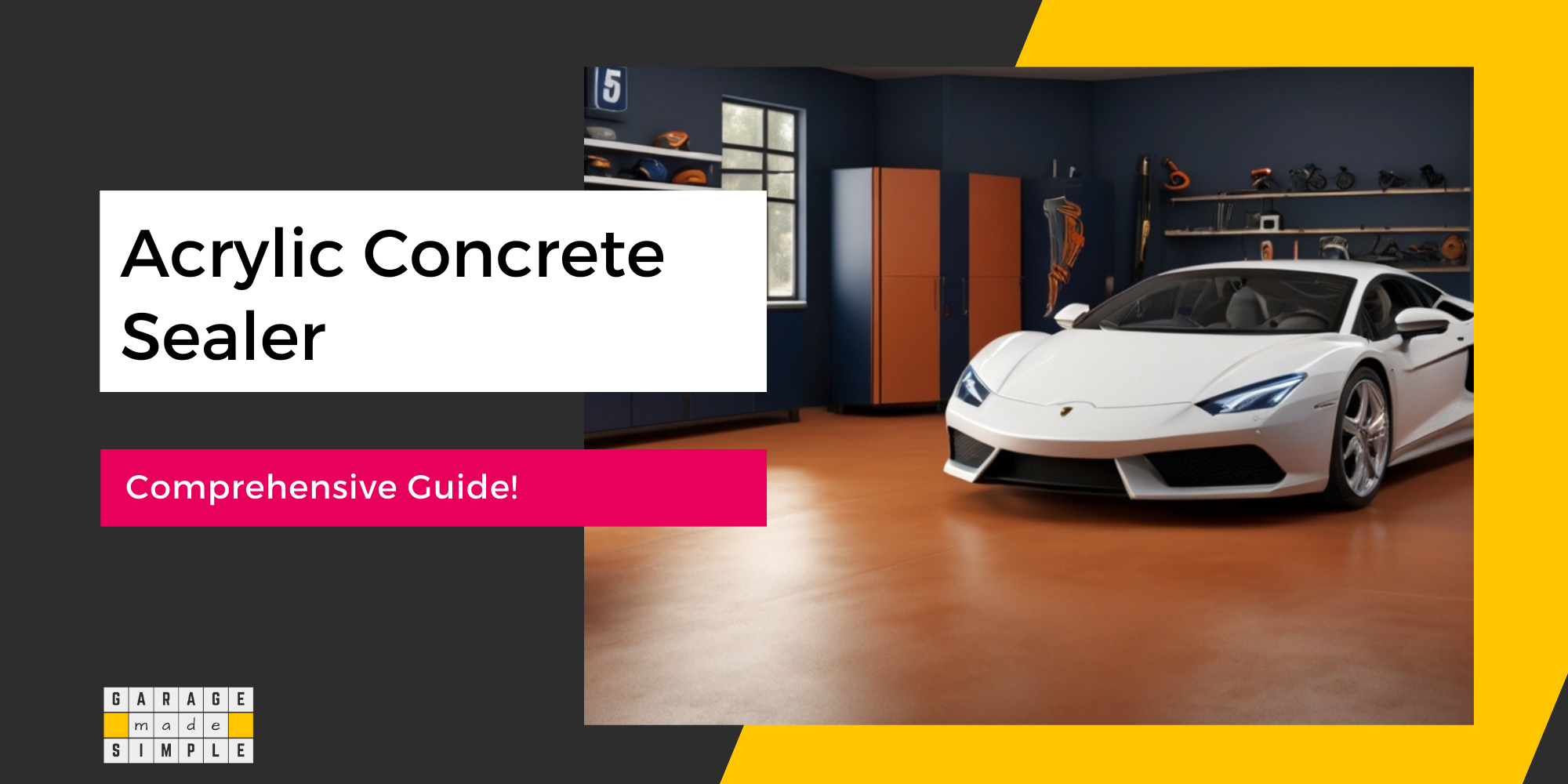The Best Non Yellowing Garage Floor Topcoats! (Complete Guide)
As an Amazon Associate, I earn from qualifying purchases.
What Are The Best Non Yellowing Garage Floor Topcoats?
Don’t you like to open up the windows and doors of a garage in good weather and let some sunlight in? Natural sunlight freshens up the garage, kills mold & bacteria and lifts up your mood. But sunlight is not very kind to your garage floor, as many coatings tend to yellow on exposure to UV radiation. So what are The Best Non Yellowing Garage Floor Topcoats?
You can protect your garage floor coating by using a clear topcoat. You can choose from polycuramine, polyaspartic, polyurea, polyurethane, epoxy and acrylic clear topcoats. Each has its pros & cons.
Polyaspartic is the best non yellowing garage floor clear topcoat. Polyurethanes with UV inhibitors are the next best choice, as non yellowing garage floor clear topcoat. All other polymers will result in noticeable yellowing on exposure to sunlight.
In this post I explain why coatings yellow and how each type of resin performs in relation to yellowing on exposure to UV radiation from the sunlight.
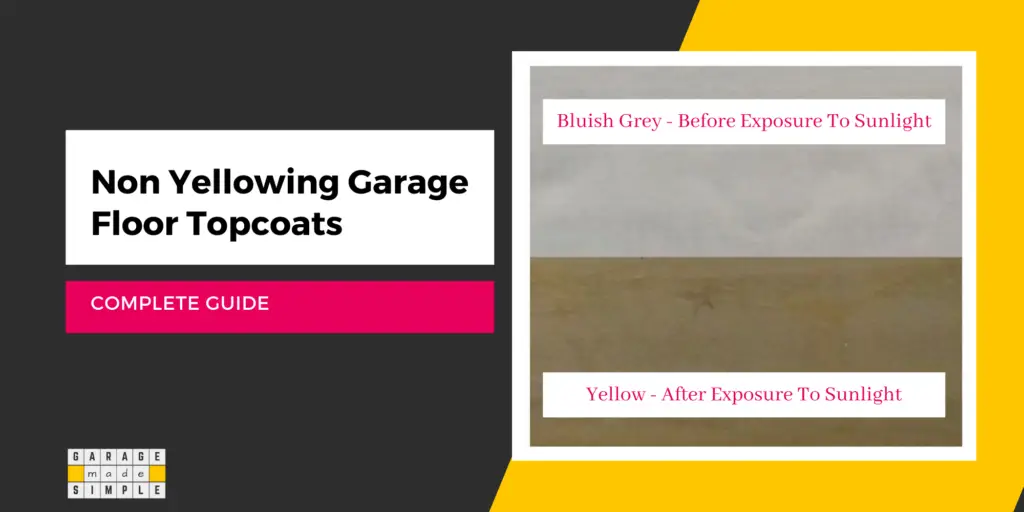
In the world of floor coatings, manufacturers will usually state whether their product is suitable for exterior use or not. Yellowing due to UV radiation exposure is an important parameter for making this statement.
A garage is considered as an indoor space. But a garage can have more sunlight streaming in than any other indoor space in your home. The main reason for this is of course the large garage door.
A standard 2 car garage door is 16’X8’ (128 square feet) and a standard 1 car garage door is 8’X8’ (64 square feet). Add to that any windows that you may have and you have a lot of area for sunlight to stream in.
The problem with an indoor space that receives a fair amount of sunlight is that the light does not fall uniformly across the entire floor. Some sections will get a lot of direct sunlight, while other floor areas do not get any.
This can lead to uneven chalking and discoloration of the garage floor. Not a pretty sight!
What Does It Mean When Resin Turns Yellow?
An important ingredient of any paint or coating is the resin, also known as the binder. The type of resin used, dictates the non yellowing property of a garage floor topcoats, irrespective of the garage floor color.
The pigment used in the coating also affects the yellowing, but this is specific to the color. Some pigments can yellow more than others. The Resin type on the other hand affects yellowing of all colors.
To be fair, the yellowing will be more noticeable in pastel tones and colors such as white, light grey, cream, etc and less in deep accent colors such as black, midnight blue or green glass.
The resin in a paint film can yellow due to
- Exposure to UV radiation in sunlight
- High temperatures
- Excessive moisture on the film
Yellowing of a resin is basically the oxidation of the resin or the polymer that is used as a binder in a garage floor coating. The energy in the UV radiation knocks off some of the electrons in the polymer chain resulting in mechanical degradation and yellowing of the paint film.
This process is also known as photo-oxidation or photo-yellowing and occurs in the presence of light and oxygen.
The yellowing is irreversible but is limited to the top layer of the film. This is why a clear topcoat that is UV resistant can significantly reduce the yellowing of the base coat of the garage floor coating.
Do note that the presence of moisture can aggravate the yellowing. Water molecules can leach into the polymer chain structure and accelerate polymer degradation.
Does Polycuramine Turn Yellow?
Polycuramine Coatings combine the best of Polyurea, Urethane and Epoxy chemistries. It is a proprietary formulation of Rust-oleum and is sold as a garage floor coating under the well known brand, RockSolid.
However, Polycuramine is not designed for exterior use and may yellow when exposed to UV radiation in sunlight. The extract below from the RockSolid FAQ makes that quite clear.
RockSolid® Polycuramine® Floor Coatings are not recommended for exterior use because they are not designed to withstand the outdoor elements and do not contain UV protection. If RockSolid® is applied to an outdoor surface, it will likely yellow and weather over time.
Rust-oleum RockSolid FAQ
In spite of this, Rust-oleum RockSolid is certainly the best garage floor coating you can buy. Buy Rust-Oleum RockSolid Pearlescent Pearl Black Garage Floor Coating Kit from Amazon by clicking this link.
Does Epoxy Turn Yellow?
Epoxy garage flooring is the preferred choice of many garage owners. However, when exposed to direct sunlight, epoxy coatings are more prone to yellowing than most other type of floor coatings,
In the protective coatings world, epoxy coatings are considered suitable for interior use only. Epoxy coatings are not recommended for exterior applications as they chalk and yellow on exposure.
Some brands incorporate UV stabilizers in their epoxy coating formulation. The UV stabilizer makes the coating UV resistant. The epoxy coating, with UV stabilizer is less likely to yellow, chalk, lose gloss or delaminate.
A good example is Resene Aquapoxy from New Zealand.
Resene Aquapoxy for Flooring is a two pack low VOC waterborne epoxy floor coating. The cured film is glossy and non-yellowing with high surface hardness.
Resene Aquapoxy
Does Polyurethane Turn Yellow?
Compared to epoxy coatings, polyurethane coatings have a high degree of UV resistance. In industrial protective coating applications, polyurethanes are the preferred choice for exterior installations such as tanks and pipelines.
The UV resistance of polyurethane coating can be further enhanced by incorporating UV inhibitors in the formulation. Properly formulated polyurethane does not yellow in spite of exposure to direct sunlight.
But polyurethane chemistry is complex and a wide range of polyurethane polymers are possible.
“The polyurethane (PU) chemistry is a bit more complex. PU is formed by reactions between the two monomers, an isocyanate & a polyol. A broad spectrum of PU resins are possible as there is a wide range of isocyanates & polyols.”
Source: American Chemistry Council
Low grade polyurethane coatings such as one part urethanes and moisture cured urethanes do not have UV resistance or the non yellowing property required from garage floor topcoats. At the higher end of the PU spectrum are aromatic Polyurea and aliphatic Polyaspartic Floor Coatings.
Does Polyurea Turn Yellow?
Even though Polyaspartic is a type of Polyurea, in commonly used language, Polyurea refers to aromatic Polyurea. So what is the difference between aliphatic and aromatic Polyurea?
Simply stated, an aliphatic polyurea resin has a chain structure while an aromatic polyurea resin has a ring structure.
Aromatic Polyurea resin is the result of a reaction between an aromatic diisocyanate component and a synthetic resin blend component. The ring structure gives it superior stability.
Aromatic Polyurea is relatively fast curing and insensitive to moisture, making it a popular ingredient in several types of paints and coatings. However, it is not UV resistant and has poor color retention when exposed to sunlight.
Does Polyaspartic Turn Yellow?
Aliphatic Polyurea resin is the result of a reaction between an aliphatic diisocyanate component and a synthetic resin blend component. Polyaspartic or Aliphatic Polyurea is more difficult to process and generally costs twice as much as an aromatic Polyurea.
However, Polyaspartic has excellent UV resistance, is non yellowing and colorfast. As a result, Polyaspartics make superb clear top coats and can be used to complement an Epoxy Garage Floor Coating.
Aliphatic Polyurea can be either acrylic-saturated or polyester-saturated.
Acrylic Aliphatic Polyurea:
The acrylic-based polyurethanes are mostly used in automotive finishes. They are easy to apply but are not very flexible. Acrylic urethanes are inherently not UV resistant. A very high quantity of UV inhibitors is needed to get the desired UV resistance and non yellowing property.
Polyester Aliphatic Polyurea:
Polyester Aliphatic Polyurea is top of the line technology for weather resistance. It is ideal for use as a top coat on garage floor coatings.
Thank you very much for reading the post. I do hope you found it informative and useful.
